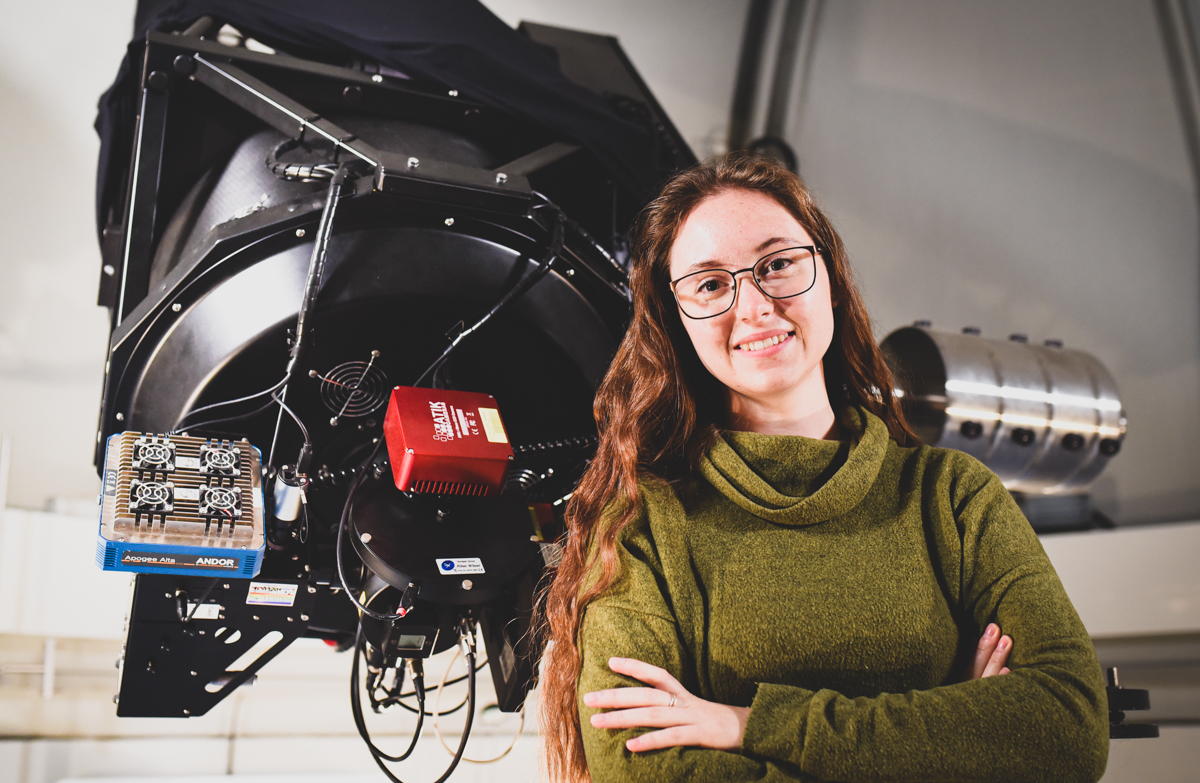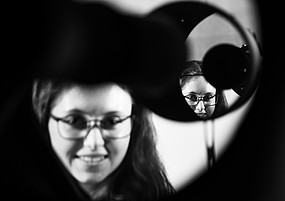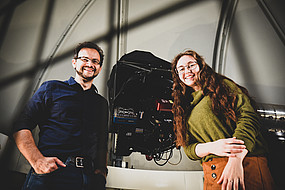Genau 3394 Kilometer von Graz entfernt, im norwegischen Andøya, konstruieren in nur einer Woche 24 Studierende aus Europa und Kanada eine Höhenforschungsrakete. Der zwei Meter hohe Zylinder soll am 16. Oktober 2021 abheben und in acht Kilometer Höhe wertvolle Wetterdaten an den Boden senden. Mit dabei ist auch Victoria Kutnohorsky, die an der Uni Graz studiert.
Ganz am Anfang der Mission stand ein Posting der European Space Agency (ESA) auf Instagram, den Kutnohorsky auf ihrem Smartphone angeklickt hat. Darin verpackt war ein Aufruf an JungwissenschafterInnen sich freiwillig für den Bau einer Rakete zu melden. „Ich verfasste ein Motivationsschreiben und welche Messtechnik ich mitschicken würde“, erklärt sie. Einige Zeit später bekam sie Rückmeldung, dass sie ins Team aufgenommen wurde und sie konnte am 9. Oktober 2021 nach Andøya in das Space Center der ESA nahe dem Polarkreis reisen. Die Vorbereitungen dafür laufen bereits seit November des vergangenen Jahres. Im Vorfeld konnte sie sich über Webkonferenzen mit den anderen RaketenkonstrukteurInnen austauschen.
„Der Weltraum und die Astrophysik haben mich schon immer sehr interessiert. Bereits in der Schule wusste ich, dass ich etwas Naturwissenschaftliches machen möchte“, betont Kutnohorsky. Gesagt, getan: Seit 2018 ist sie NAWIGraz-Studierende im Fach Physik und schreibt in ihrer Bachelorarbeit aktuell über Exoplaneten, also über Himmelskörper, die sich außerhalb unseres Sonnensystems befinden. Dazu verbringt die Jungforscherin immer wieder ganze Nächte mit Sternenbeobachtung im Observatorium Lustbühel.
In Norwegen ist die junge Oberösterreicherin Teil der Gruppe, die sich mit Messgeräten und den Sensoren an Bord der Mini-Rakete beschäftigt. „Wir schicken insgesamt acht Sensoren mit. Darunter Instrumente für die Temperaturmessung, einen Druck- und einen Lichtsensor und auch GPS für die Orientierung“, erzählt sie. Ein anderes Team kümmert sich um den Antrieb, andere berechnen die Flugbahn der Rakete. Für die Physikstudentin hat die Reise einen Mehrwert: Neben dem Erlebnis so hoch im Norden Europas am „Fly a rocket“-Programm der ESA teilnehmen zu können, möchte Kutnohorsky die Messdaten auch nachhaltig verwerten. „Ich hoffe wir können genug Informationen sammeln, damit ich sie in einer Vorlesung zum Thema Klimaphysik meinen Mitstudierenden präsentieren kann.“
Mehr Informationen: https://www.esa.int/Education/Fly_A_Rocket


